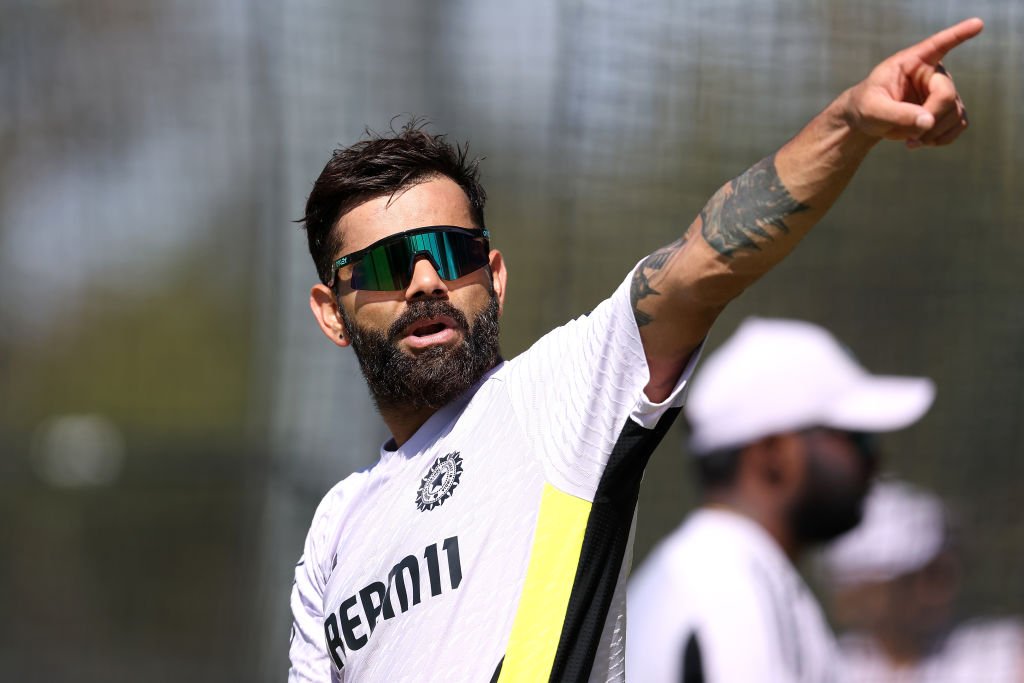
Ricky Ponting, the legendary Australian cricketer, recently reflected on a comment made by former Indian coach Ravi Shastri about Virat Kohli’s leadership during India’s historic 2020-21 series win in Australia. Ponting, one of cricket’s most celebrated figures, expressed his admiration for Kohli’s commitment, stating that Kohli wanted to take all the responsibility for his team, particularly when the situation was tough. The remark highlights not only Kohli’s leadership qualities but also the deep responsibility that comes with captaining a cricketing powerhouse like India. Ponting’s words underscore how Kohli managed the immense pressures of international cricket while also motivating his team to perform in one of the toughest environments in the world.
Virat Kohli’s leadership in Australia during the 2020-21 Border-Gavaskar Trophy was a testament to his resilience and character. Kohli, who captained India through an intense series under extremely challenging conditions, had to make some tough decisions that showcased his bold leadership style. Despite leaving the series after the first Test to attend the birth of his child, Kohli’s influence on the team was unmistakable. His leadership in the first Test, where India suffered a historic defeat in Adelaide, was pivotal in setting the tone for the rest of the series. His decision to take the blame for the team’s performance, particularly after the disastrous collapse in the first innings of the Adelaide Test, was reflective of his determination to shield his players from the backlash, a move that resonated deeply with both fans and critics.
Ravi Shastri’s assessment of Kohli as a leader who wanted to “take all the bullets” was a direct nod to the weight of responsibility Kohli felt as the captain of one of the world’s most high-profile cricket teams. Kohli, known for his aggressive batting and relentless work ethic, had become the focal point of India’s cricketing ambitions. When things went wrong, he was the first to take responsibility, shielding his teammates from the intense media scrutiny that often accompanies Indian cricket. This leadership trait is something that has defined Kohli’s captaincy throughout his tenure. He always preferred to stand in front of the firing line when the team faced criticism, ensuring his players could focus on the game rather than external pressures.
However, Kohli’s leadership has not been without its critics. Some have argued that his aggressive style can be divisive, and that his persona sometimes overshadows the contributions of his teammates. Others believe that his intensity, which works on the field, might not always translate into harmony off the field. But despite these criticisms, Kohli’s ability to take responsibility and remain accountable for his team’s performances is what sets him apart. His transparency and willingness to make tough decisions for the betterment of the team have made him a respected figure in the cricketing world.
Ponting’s admiration for Kohli’s leadership qualities is not surprising given their own leadership experiences. Ponting, too, faced immense pressure as Australia’s captain, particularly during times of crisis. The role of a captain, particularly in a country like India, where cricket is almost a religion, involves shouldering a lot of weight. When things go wrong, captains are often the first to face the music, and Kohli has shown time and again that he has the fortitude to bear that burden. He often says that leadership is not just about taking credit when things go right, but also about shouldering responsibility when things go wrong.
Kohli’s leadership journey has been marked by highs and lows, but his desire to be the one who “takes all the bullets” shows the kind of leadership that goes beyond the technical aspects of the game. It is a form of leadership that builds trust, camaraderie, and respect among teammates. As India prepares for the future with new leaders, the influence of Kohli’s leadership style will continue to be felt. His example of holding himself accountable, standing up for his players, and continuously pushing for improvement has set a standard for future Indian captains.
In conclusion, Virat Kohli’s leadership in Australia in 2020-21 was a defining moment in his career. His willingness to take the bullets for his team, as praised by Ravi Shastri and Ricky Ponting, demonstrated the qualities of a true leader. It was a reminder that leadership in cricket, or any sport, is not just about achieving victory, but also about how one handles adversity, takes responsibility, and motivates others to rise to the challenge. Kohli’s leadership style, characterized by passion, aggression, and accountability, has made him one of the most influential leaders in modern cricket. His legacy will undoubtedly inspire future generations of cricketers to lead with courage and commitment, just as he did.

